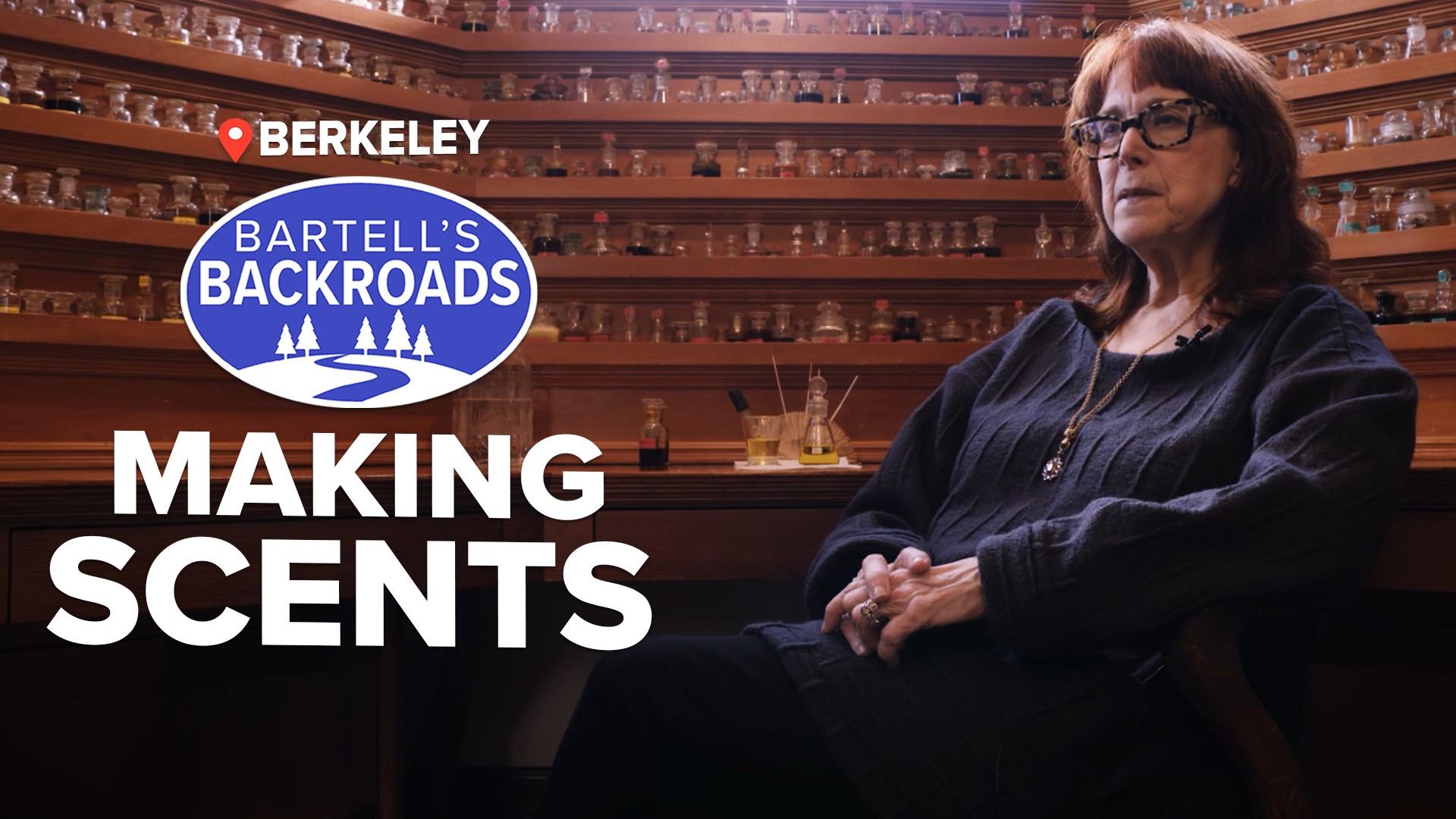BERKELEY, Calif. — If you follow your nose to Berkeley’s Gourmet Ghetto district, it may just lead past the restaurants and into a menagerie of incenses at the Aftel Archive of Curious Scents.
Owner Mandy Aftel is what you call a perfumer, and for more than 30 years she’s dedicated her life to preserving the natural elements that go into perfume. She even wrote six historical books about it.
“Inside the museum are materials that have been in every culture in the world, in every period of time,” said Aftel.
The art of perfume making dates back at least 5,000 years. It was used in cultural and religious rituals, or to simply mask the stench of ancient humans.
“Yes, some of it was to hide odor because people didn’t bathe,” said Aftel.
To hide that odor, early perfume makers started off using some familiar plant-based scents, but as perfume advanced, the search for scent got very curious.
“There is a material used in perfume, it is legendary, its called ambergris and it comes from whale poop,” said Aftel.
Believe it or not most high-end perfumes use ambergris or whale poop to make their fragrances. In fact, animal products like ambergris have a history of making their way into perfume.
TAKE A TRIP ON BARTELL'S BACKROADS:
► See an interactive map of everywhere John has visited on the backroads
► Watch all of the Backroads videos
► Follow John on Facebook
Outside the museum in the open air of Aftel’s rose garden, you can smell a lineup of any scents you're curious about. Aftel will even help you make your own perfume and to help enhance the fragrance you've made she’s developed a handy scent magnifying glass she calls an aroma cone.
“We invented those and it was really fun,” said Aftel.
Aftel is a self-taught perfumer. She learned the craft from collecting and reading century old books containing perfume recipes. She describes making perfume like composing a musical symphony.
“So the essences are called notes, and when you put them together are called chords, and where you store them is called an organ,” said Aftel.
Of the five human senses, smell is often overlooked but the mission behind Aftel's museum is to reinvigorate the joy of taking in a deep nasal breath.
“The smells themselves, the good ones, the bad ones, the strange ones, they are very alive. People should take time to smell more,” said Aftel.
You can take a tour of Aftel’s Archive of Curious Scents every Saturday between 10 a.m. and 6 p.m.
ANOTHER WONDERFUL WHIFF FROM THE BACKROADS: California's only rose oil producer is in Healdsburg. Its owners take ABC10's John Bartell on a tour from bloom to perfume.

